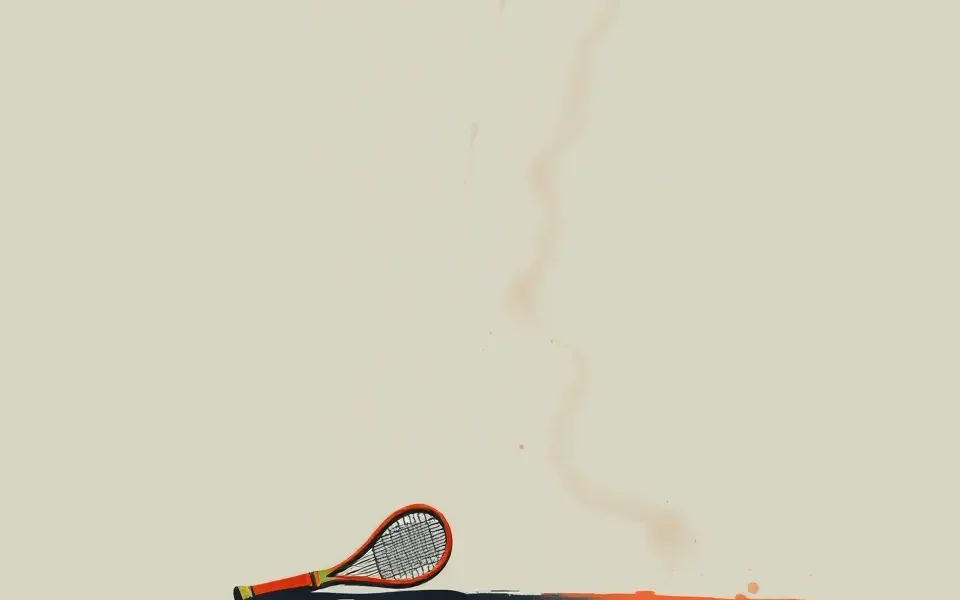Stefanos Tsitsipas, a name synonymous with Greek tennis excellence, is currently facing a significant challenge in his career: a concerning slide in the ATP rankings. After enjoying a period of sustained success, including a career-high ranking of World No. 3, Tsitsipas is now grappling with inconsistent form and mounting pressure to defend a substantial number of ranking points. This article delves into the factors contributing to his potential ranking decline and examines what the future might hold for the talented Greek player.
Current Ranking and Recent Performance
As of April 11, 2025, Stefanos Tsitsipas is ranked No. 8 in the world. While still within the top 10, this represents a drop from his peak and signals a vulnerability that could lead to further decline. His year-to-date record stands at 13 wins and 6 losses, with one title secured at the Dubai Tennis Championship in March 2025. However, recent results have been less than stellar, raising concerns about his current form and trajectory.
In the recent Monte-Carlo Masters, a tournament where Tsitsipas has historically excelled, he suffered a quarterfinal defeat to Lorenzo Musetti. This loss is particularly significant because Tsitsipas was the defending champion, meaning he will lose a considerable number of ranking points as a result.
Monte-Carlo Masters 2025
- Round of 32: Defeated Jordan Thompson
- Round of 16: Defeated Nuno Borges
- Quarterfinals: Lost to Lorenzo Musetti (1-6, 6-4, 6-3)
This quarterfinal loss in Monte-Carlo will cause Tsitsipas to drop out of the top 15 for the first time since 2018, falling to around No. 16 in the world rankings.
Points to Defend
One of the most pressing issues for Tsitsipas is the high number of ATP ranking points he needs to defend, especially during the clay-court season. According to recent reports, Tsitsipas is defending 1,940 points on clay, which is among the highest of any player on the ATP Tour.
Defending a large number of points means that Tsitsipas needs to perform exceptionally well in upcoming tournaments just to maintain his current ranking. Any early losses will result in further drops, potentially pushing him outside the top 20.
Factors Contributing to the Ranking Slide
Several factors appear to be contributing to Tsitsipas’ current struggles:
1. Inconsistent Form
Tsitsipas has shown flashes of brilliance, such as his title win in Dubai. However, he has also suffered unexpected losses and struggled to maintain consistency across tournaments. This inconsistency makes it difficult for him to string together deep runs in major events, which are crucial for maintaining a high ranking.
2. Increased Competition
The ATP Tour is more competitive than ever, with a new generation of talented players emerging and challenging the established stars. Players like Carlos Alcaraz, Jannik Sinner, and others have raised the bar, making it tougher for Tsitsipas to dominate tournaments as he once did.
3. Clay Court Pressure
While Tsitsipas has a strong record on clay, it also means he has a lot of points to defend during the clay-court season. This adds extra pressure, as he needs to perform well on his favorite surface to avoid further ranking drops.
4. Coaching Changes
In early 2024, Tsitsipas parted ways with his long-time coach and father, Apostolos Tsitsipas, and later brought in Dimitris Chatzinikolaou. Any coaching change can bring adjustments and require time to establish a successful player-coach dynamic, potentially impacting performance in the short term. Furthermore, in April 2025, there were reports that Tsitsipas would be working with Goran Ivanisevic after the French Open. Such changes in coaching staff can sometimes disrupt a player’s rhythm and strategy.
5. Injury Concerns
Although there are no specific reports of current major injuries, tennis is a physically demanding sport, and any nagging injuries or fitness concerns can impact a player’s ability to compete at their best. In the past, Tsitsipas has had injury issues that have affected his performance. In his recent match against Lorenzo Musetti in Monte-Carlo, some observers noted that Tsitsipas’ shoulder might have been bothering him, affecting his serve.
6. Mental Challenges
The mental aspect of tennis is crucial, and any doubts or lack of confidence can affect a player’s performance. Tsitsipas has, at times, appeared to struggle with the mental side of the game, especially in pressure situations.
Potential Consequences of a Further Ranking Decline
A further drop in the rankings could have several negative consequences for Tsitsipas:
1. Tougher Draws
A lower ranking means Tsitsipas would face higher-ranked opponents earlier in tournaments, making it more difficult to advance to the later stages.
2. Reduced Seeding
A lower seeding would mean he is less likely to be protected from facing top players in the early rounds.
3. Loss of Confidence
Falling down the rankings can erode a player’s confidence, leading to a negative cycle of poor results and further decline.
4. Qualification Concerns
If his ranking drops significantly, Tsitsipas might even face the prospect of needing to qualify for some tournaments, which would add extra pressure and matches to his schedule.
Can Tsitsipas Turn Things Around?
Despite the current challenges, there are reasons to believe that Tsitsipas can turn his season around and regain his place among the top players:
1. Proven Talent
Tsitsipas has demonstrated his talent and potential throughout his career, winning multiple titles and reaching Grand Slam finals. His skills and abilities are undeniable.
2. Clay Court Expertise
He has a strong record on clay and is capable of winning big tournaments on this surface. If he can regain his confidence and form, he could have a successful clay-court season.
3. Recent Title in Dubai
His victory in Dubai earlier this year shows that he is still capable of winning titles and competing at a high level.
4. Motivation to Improve
Tsitsipas has publicly stated his desire to “reinvent” himself and improve his game. This suggests he is aware of the challenges he faces and is motivated to work hard and overcome them.
5. Age and Potential
At 26 years old, Tsitsipas is still relatively young in tennis terms and has plenty of time to achieve his goals.
Strategies for a Comeback
To reverse his ranking slide, Tsitsipas needs to focus on several key areas:
1. Consistency
Improving his consistency and avoiding early losses in tournaments is crucial. This requires a combination of physical and mental resilience.
2. Tactical Adjustments
Working with his coach to refine his game plan and develop new strategies to counter his opponents is essential.
3. Mental Fortitude
Strengthening his mental game and developing strategies for handling pressure situations will be vital for his success.
4. Physical Conditioning
Maintaining peak physical condition and avoiding injuries will allow him to compete at his best throughout the season.
5. Strategic Scheduling
Carefully planning his tournament schedule to balance the need to defend points with the risk of overplaying is important.
The Road Ahead
The next few months will be critical for Stefanos Tsitsipas. With a large number of points to defend on clay, he faces a significant challenge to maintain his ranking. However, if he can regain his form, make tactical adjustments, and strengthen his mental game, he has the potential to turn things around and climb back up the rankings.
His performance in the upcoming tournaments, particularly the French Open, will be closely watched by fans and analysts alike. Whether he can rise to the occasion and deliver his best tennis remains to be seen, but one thing is certain: the next chapter of Stefanos Tsitsipas’ career promises to be an intriguing and compelling one.








No Comment! Be the first one.